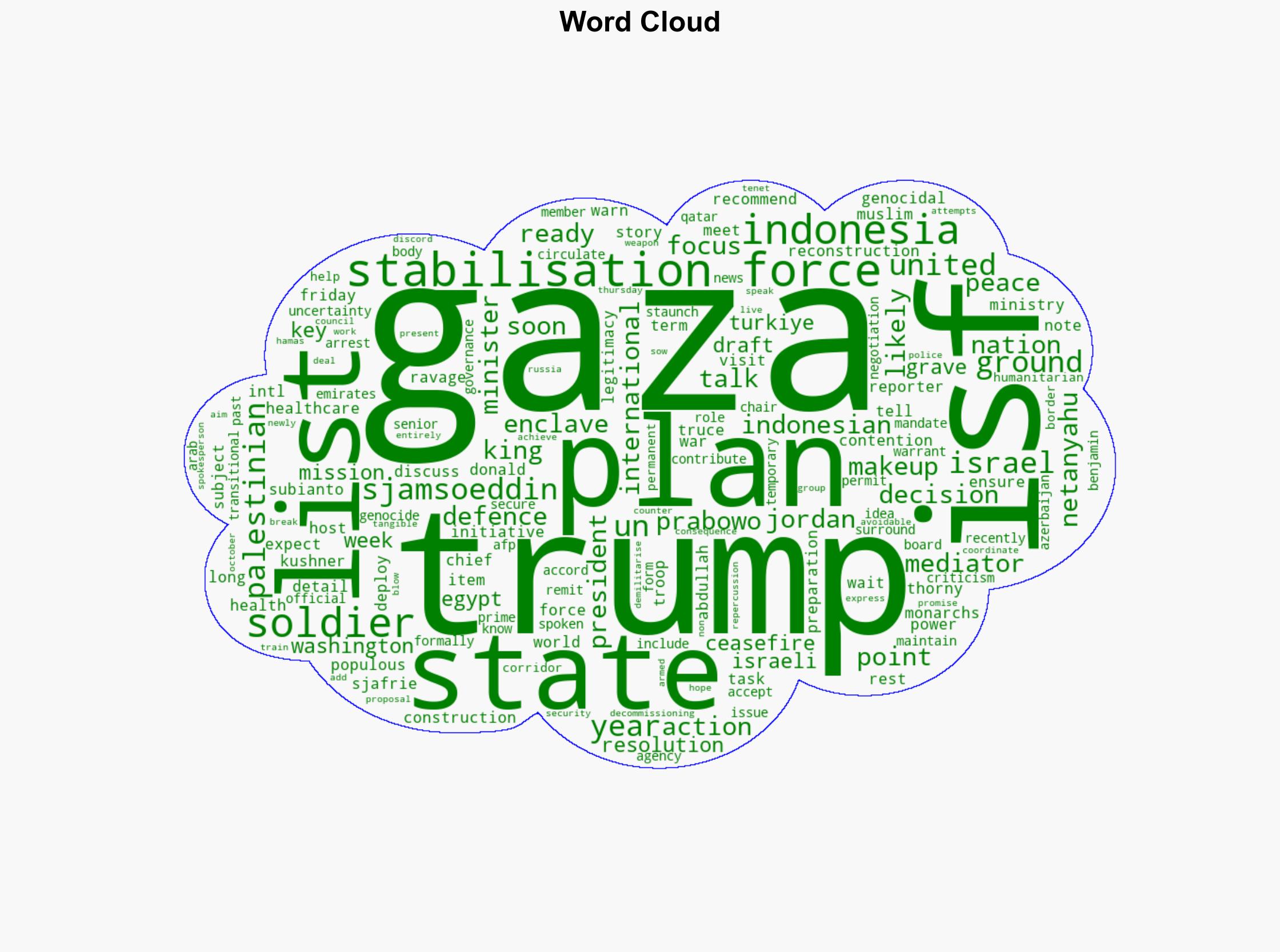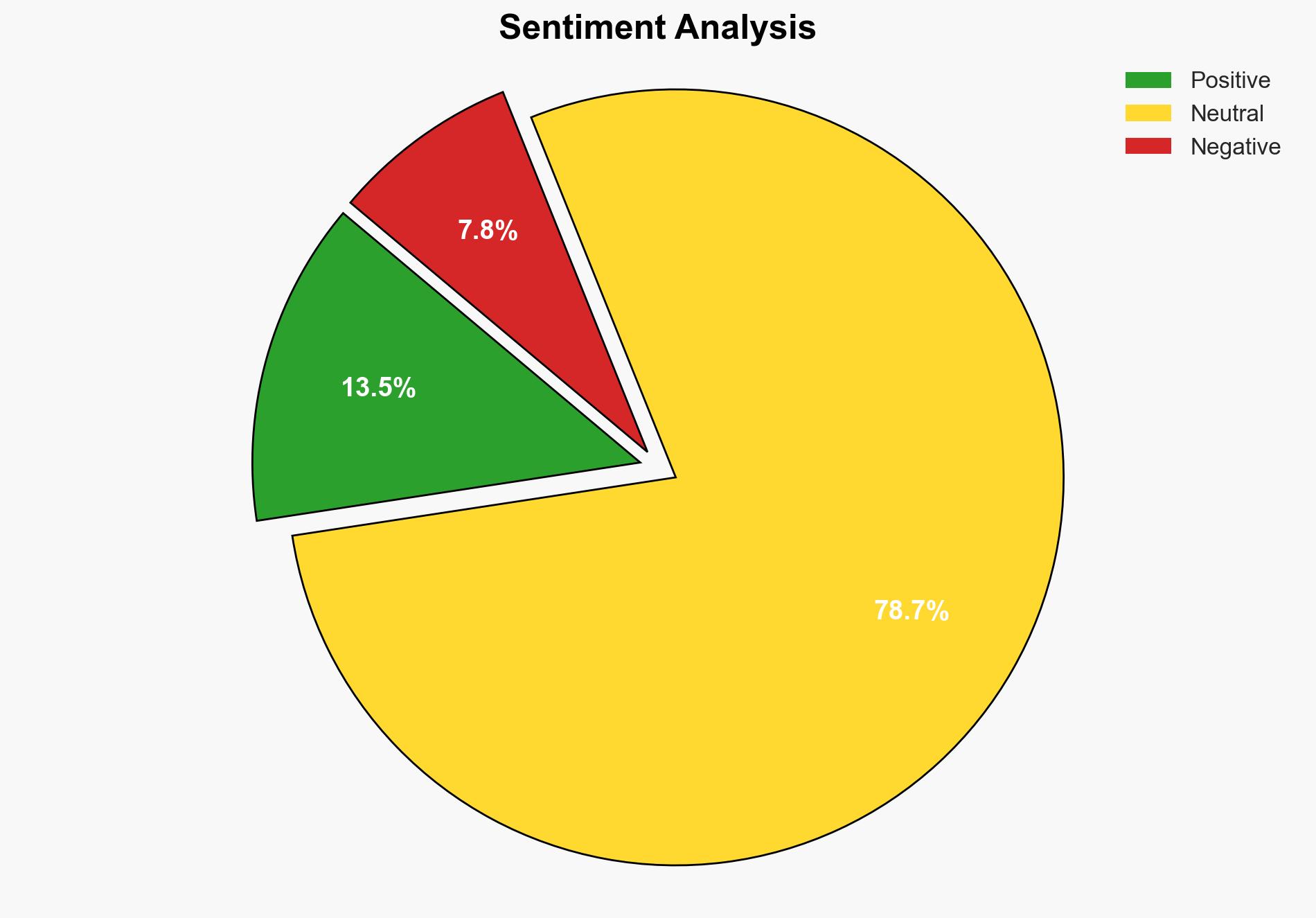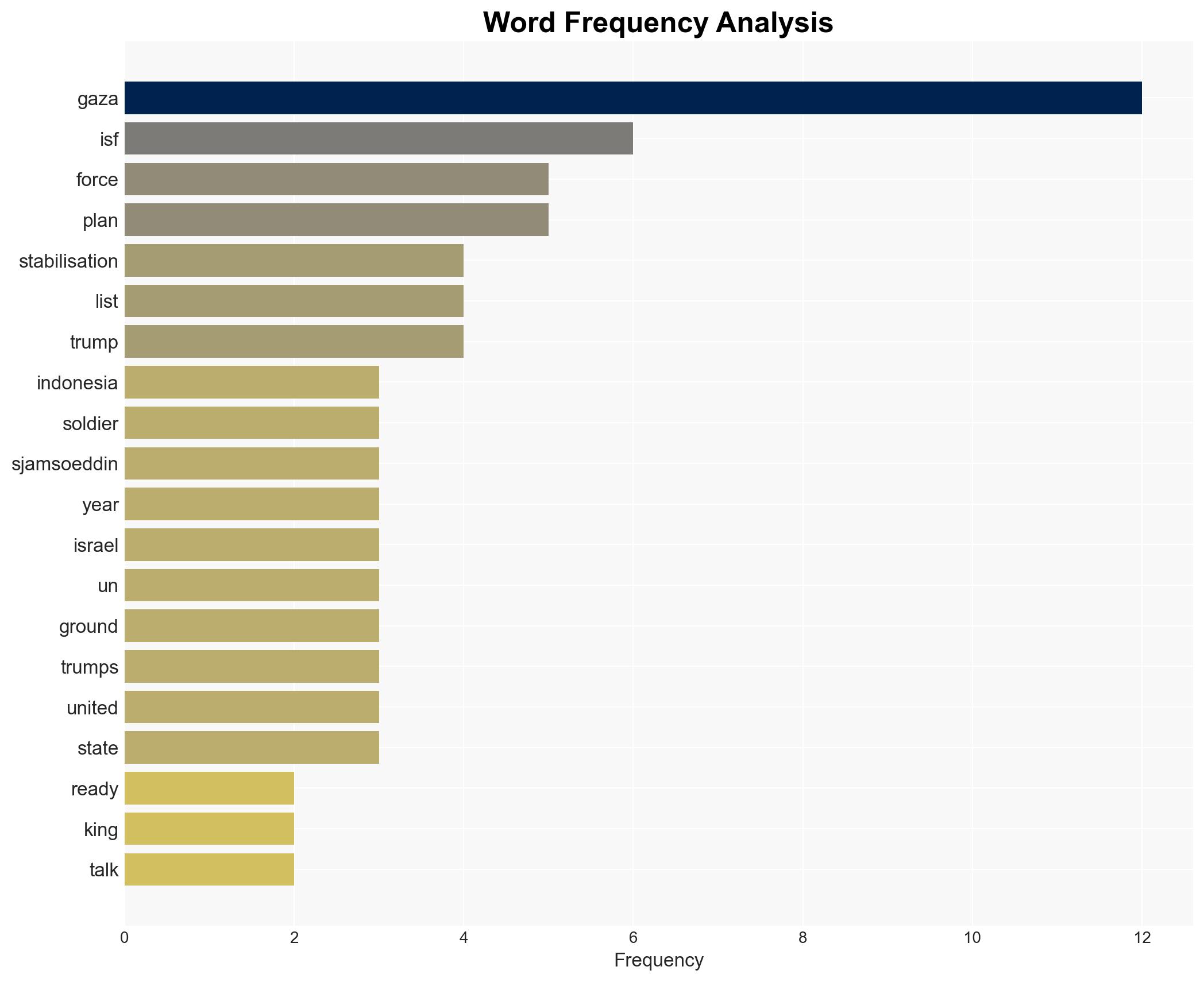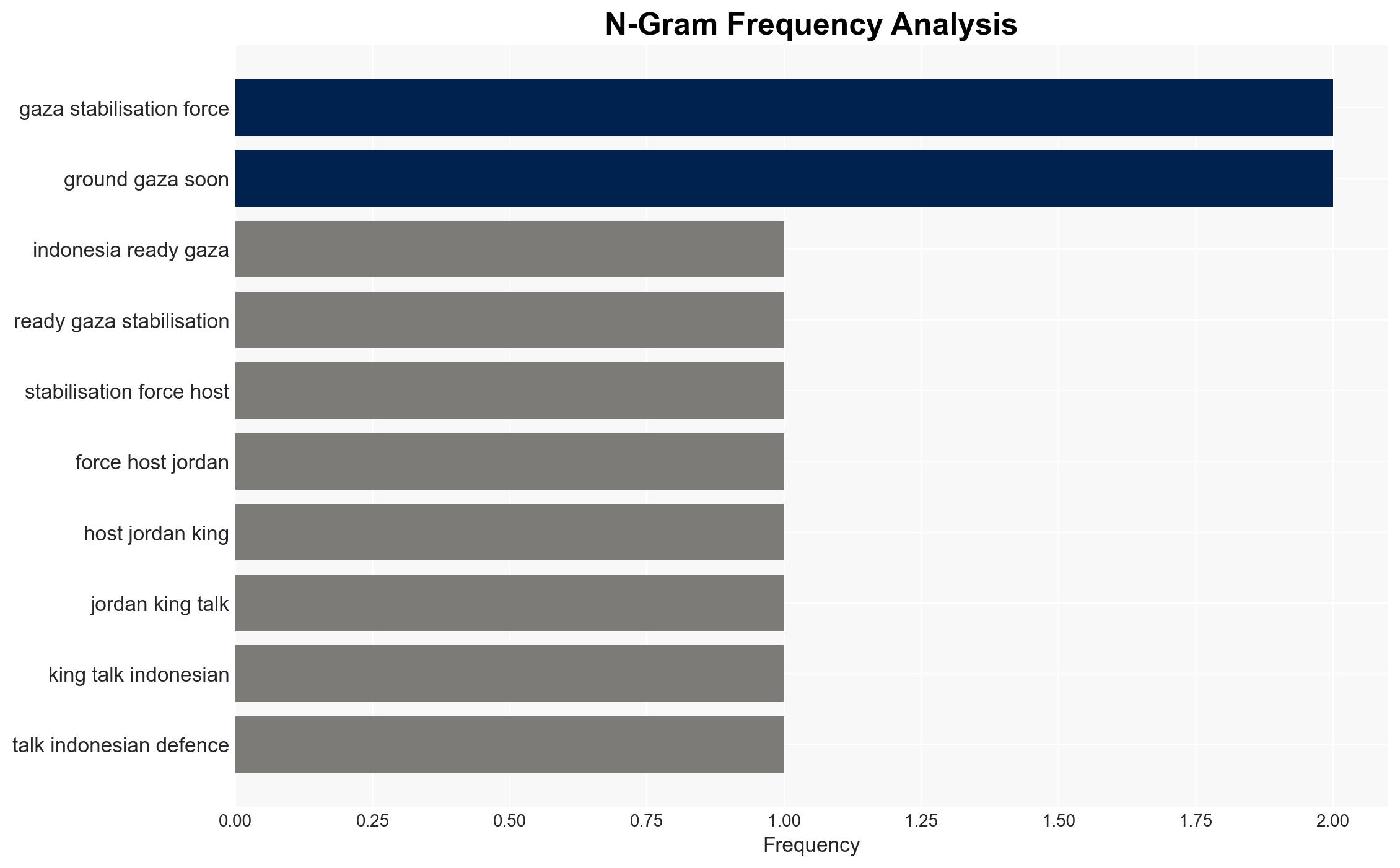Indonesia readies Gaza stabilisation force hosts Jordans king for talks – Al Jazeera English
Published on: 2025-11-14
AI-powered OSINT brief from verified open sources. Automated NLP signal extraction with human verification. See our Methodology and Why WorldWideWatchers.
Intelligence Report: Indonesia readies Gaza stabilisation force hosts Jordans king for talks – Al Jazeera English
1. BLUF (Bottom Line Up Front)
Indonesia’s initiative to contribute to a Gaza stabilization force, in collaboration with Jordan and other nations, represents a significant geopolitical maneuver. The most supported hypothesis is that Indonesia aims to enhance its international standing and influence in Middle Eastern affairs. Confidence Level: Moderate. Recommended action: Monitor developments closely and engage in diplomatic dialogue to understand Indonesia’s strategic objectives and potential impacts on regional stability.
2. Competing Hypotheses
Hypothesis 1: Indonesia is primarily motivated by humanitarian concerns and seeks to contribute to peace and stability in Gaza through the stabilization force.
Hypothesis 2: Indonesia is leveraging the stabilization force initiative to increase its geopolitical influence in the Middle East and strengthen ties with key regional players, such as Jordan and Turkey.
Assessment: While humanitarian concerns are likely genuine, the strategic benefits of increased influence in the Middle East make Hypothesis 2 more plausible. Indonesia’s engagement with Jordan and discussions on the international stabilization force suggest a broader geopolitical strategy.
3. Key Assumptions and Red Flags
Assumptions: Indonesia’s military involvement will be limited to non-combat roles such as healthcare and reconstruction. The international stabilization force will receive broad international support and legitimacy.
Red Flags: Potential resistance from regional actors, particularly Israel and Hamas, could undermine the stabilization force’s effectiveness. The lack of clarity on the force’s mandate and composition raises concerns about its operational viability.
4. Implications and Strategic Risks
The deployment of an international stabilization force in Gaza could lead to several strategic risks, including political tensions between contributing nations and regional actors. There is a risk of escalation if the force is perceived as biased or ineffective. Additionally, the involvement of multiple countries could complicate command and control structures, leading to operational challenges.
5. Recommendations and Outlook
- Engage in diplomatic discussions with Indonesia and other contributing nations to clarify the stabilization force’s objectives and operational framework.
- Monitor regional reactions, particularly from Israel, Hamas, and Turkey, to anticipate potential challenges and adjust strategies accordingly.
- Best-case scenario: The stabilization force successfully contributes to peace and reconstruction in Gaza, enhancing regional stability.
- Worst-case scenario: The force faces significant resistance, leading to increased tensions and potential conflict escalation.
- Most-likely scenario: The force achieves limited success, with ongoing challenges in coordination and regional acceptance.
6. Key Individuals and Entities
Prabowo Subianto, Sjafrie Sjamsoeddin, King Abdullah of Jordan, Donald Trump, Benjamin Netanyahu.
7. Thematic Tags
Structured Analytic Techniques Applied
- Cognitive Bias Stress Test: Expose and correct potential biases in assessments through red-teaming and structured challenge.
- Bayesian Scenario Modeling: Use probabilistic forecasting for conflict trajectories or escalation likelihood.
- Network Influence Mapping: Map relationships between state and non-state actors for impact estimation.
Explore more:
National Security Threats Briefs ·
Daily Summary ·
Support us
·





